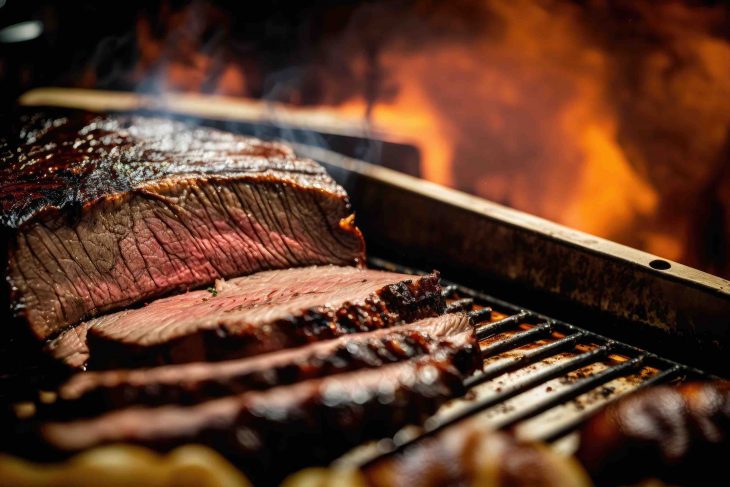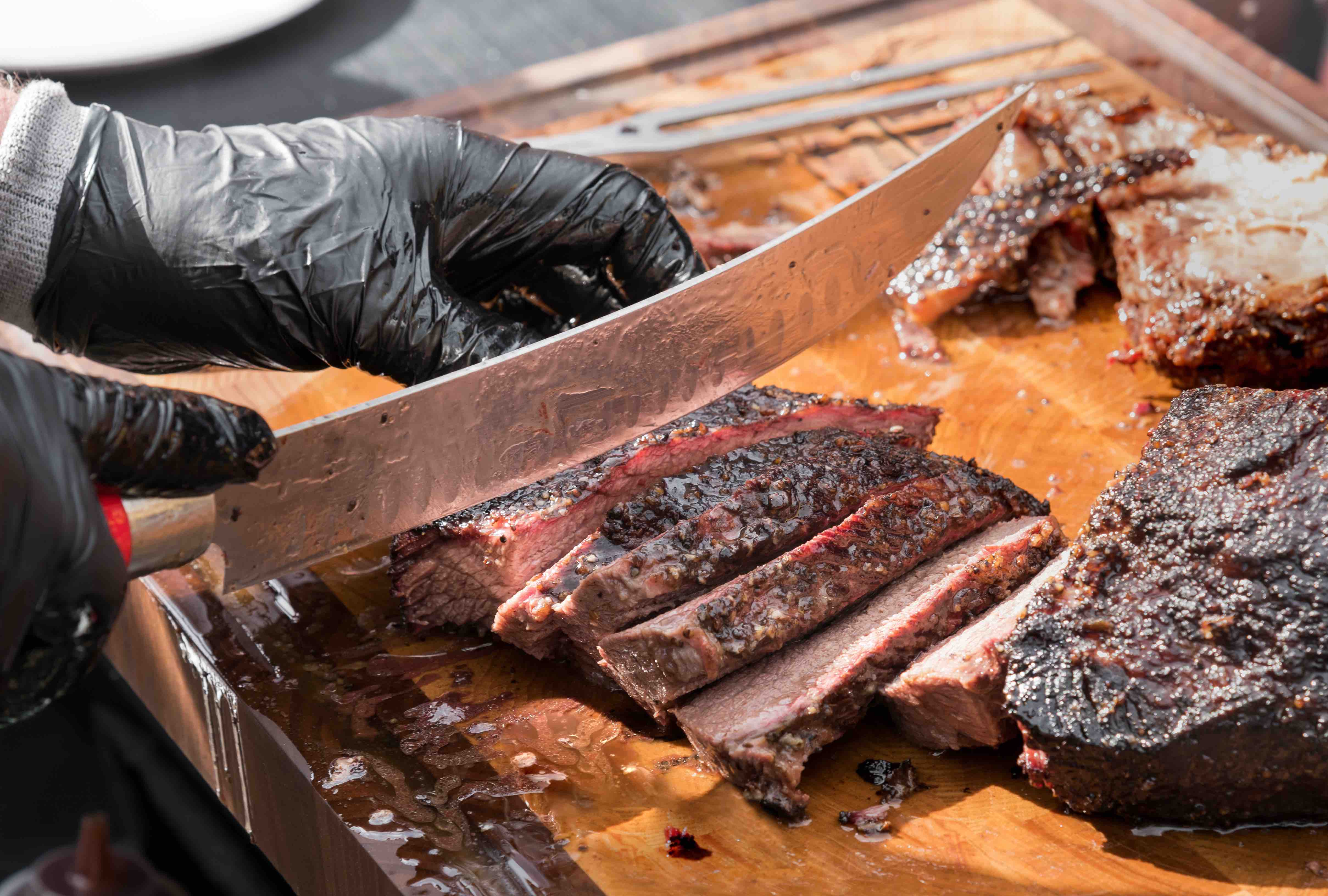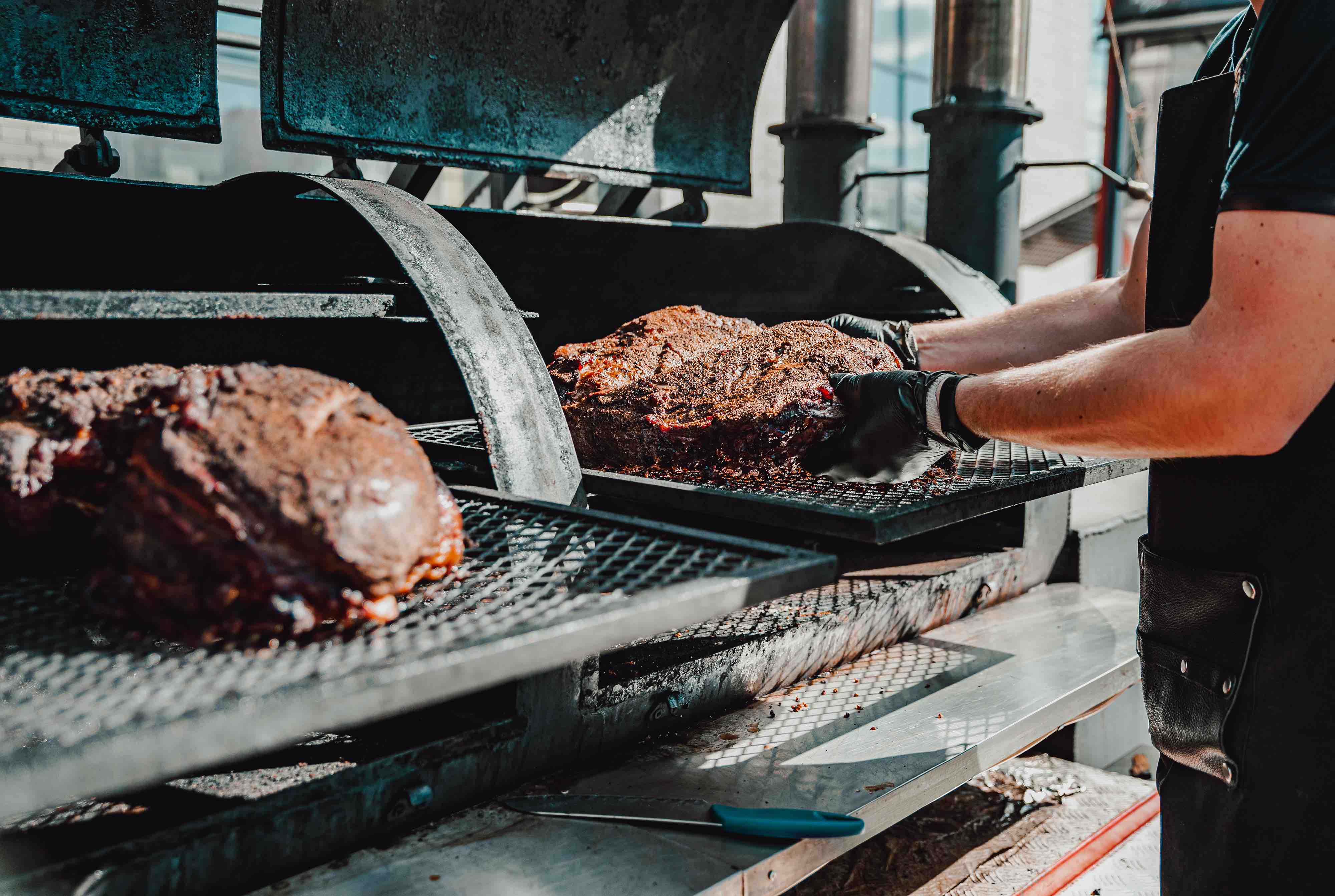
The heavenly aroma of slow-cooked brisket wafting through the air is enough to make any meat lover’s heart race. It’s a star of BBQ joints and home kitchens alike, celebrated for its tender texture and rich flavor. But what about its nutritional profile? Is brisket healthy? Let’s delve into 11 brisket nutrition facts that might surprise you.
What is Brisket
First things first: brisket is a cut of meat from the breast or lower chest of beef or veal. It’s a large, tough cut that benefits from long, slow cooking methods like braising or smoking. This transforms it into a succulent, melt-in-your-mouth delight. It is also one of the most popular types of meat.
That said, not all types of cows are capable of producing high-quality briskets. The Angus is the best for briskets.
Protein-Packed
Brisket is an excellent source of protein. A 3-ounce serving of cooked brisket contains about 24 grams of protein, making it a powerful fuel for muscle growth and repair.
Calorie Count
The amount of calories in brisket varies depending on the cooking method and any sauces or marinades used. A 3-ounce serving of cooked brisket has around 250 calories.

Fat Content
Brisket is known for its fat content, which contributes to its rich flavor and tender texture. A 3-ounce serving contains about 16 grams of total fat, of which 6 grams are saturated.
Calcium and Iron
Brisket isn’t just about protein and fat. It’s also a good source of key minerals like calcium (14 milligrams), and iron (2.1 grams), all of which play crucial roles in maintaining good health.
Sodium Levels
If you’re watching your sodium intake, keep an eye on brisket. The sodium content can vary widely, especially if the brisket is brined or seasoned with a high-sodium rub. A 3-ounce serving can contain 41 milligrams of sodium.
Cholesterol Content
A 3-ounce serving of brisket contains about 90 milligrams of cholesterol. This is something to be mindful of if you’ve poor heart health and you’re watching your cholesterol levels.
Marbling Matters
When it comes to brisket, the marbling, or intramuscular fat, is crucial. This fat renders out during cooking, helping to keep the brisket moist and flavorful. However, it also contributes to the cut’s overall fat content.
Contains Harmful Compounds
Smoked brisket is a BBQ favorite. The smoking process imparts a unique flavor, but it’s worth noting that smoked meats can contain harmful compounds like polycyclic aromatic hydrocarbons (PAHs). Moderation is key here.

Good For Keto Diet
Thanks to its high fat and protein content, brisket is a popular choice among those following a ketogenic diet. Just be sure to opt for a low-sugar rub or marinade to keep carb counts in check.
Lean Brisket Options
If you’re looking for a leaner cut, consider the flat cut or first cut of brisket. It has less fat compared to the point cut or deckle, but it’s also less tender and can be prone to drying out during cooking.
Final Word
And that’s all the nutritional facts about briskets! As we continue to explore the fascinating world of food and nutrition, remember that knowledge is power. The more we understand about the foods we eat, the better equipped we are to make healthy, informed choices. So the next time you find yourself savoring a piece of perfectly cooked brisket, take a moment to appreciate not just its flavor, but also the nutritional benefits it brings to your plate.
Was this page helpful?
Our commitment to delivering trustworthy and engaging content is at the heart of what we do. Each fact on our site is contributed by real users like you, bringing a wealth of diverse insights and information. To ensure the highest standards of accuracy and reliability, our dedicated editors meticulously review each submission. This process guarantees that the facts we share are not only fascinating but also credible. Trust in our commitment to quality and authenticity as you explore and learn with us.
